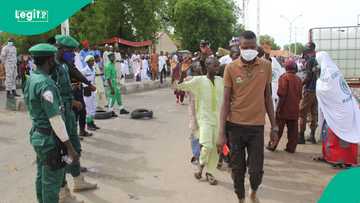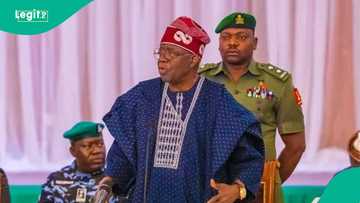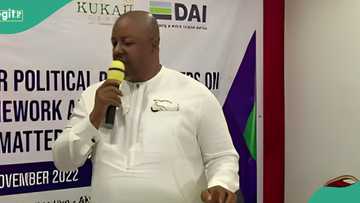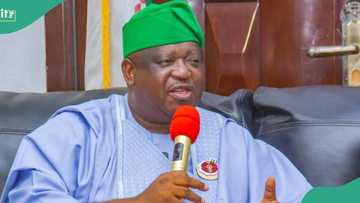Youth-Led Justice: Empowering Change Through Advocacy, Activism, Collective Action
Editor's note: In this piece, Jonathan Abakpa, a youth advocacy expert, examines how young Nigerians are reshaping justice through grassroots activism, using movements like #EndSARS and #EndHunger protests to push for lasting systemic reform.
For decades, young people have not only shaped the world’s demographic landscape but have also stood at the forefront of civic participation and social transformation. Their influence goes far beyond representation; it has been instrumental in driving movements for justice, equality, and systemic change.
In the United States, the struggle for African American liberation was significantly advanced by the activism and resilience of youth. Likewise, in South Africa, the anti-apartheid movement, most notably the Soweto Uprising, was ignited by the unwavering courage of young people demanding freedom and equality.
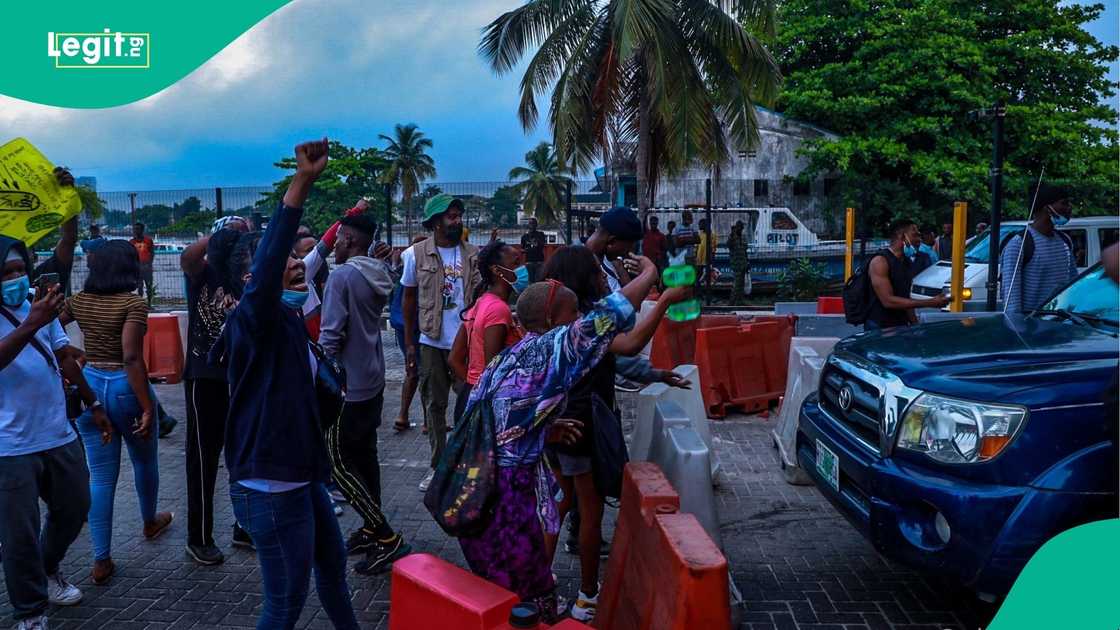
Source: Twitter
Amid this global wave of youth-led activism, Nigeria has experienced its powerful surge of solidarity and collective action. Young Nigerians have mobilized en masse, creating and occupying self-defined spaces to advocate for their rights and influence public policy.
A defining moment came in 2020 with the #EndSARS movement, a bold and unprecedented campaign against police brutality. This movement not only exposed deep systemic injustices but also sparked a new era of civic consciousness among young people, reaffirming their immense potential to shape Nigeria’s democratic future.
Find the stories that matter to you – faster. Use our new search tool: Click to search!
Long before the #EndSARS movement, Nigeria had a rich legacy of student and youth organizing. In the 1960s, young people played a pivotal role in resisting undemocratic military rule, leading nationwide mobilizations for democratic governance.
This tradition of activism continued through the years, marked by notable efforts such as the anti-Structural Adjustment Programme (SAP) protests and demonstrations against tuition hikes, boldly championed by dynamic student movements committed to social justice.
However, over time, many of these once-influential student movements have become increasingly partisan, attracting criticism for their growing alignment with government interests. Rather than serving as independent voices for youth and student welfare, they are often perceived as promoting the agenda of those in power.
Although these movements played a pivotal role in youth and student organizing, they were predominantly male-led, with young men and boys often at the forefront. Consequently, while the campaigns aimed to advance the well-being of students and young people, the unique perspectives and needs of girls and young women were frequently overlooked or marginalized within broader advocacy efforts.
In response to these gaps, alternative youth organizing models have emerged across Nigeria, led by young people mobilizing around issues that directly impact their lives. These youth-led movements have broadened their focus from education, student rights, and democratic participation to human rights, crisis response, and humanitarian efforts, particularly in the Northeast. In regions like the Niger Valley, youth are increasingly involved in peacebuilding and conflict resolution, reflecting the dynamic and evolving nature of youth activism in addressing complex societal challenges.
While this evolving self-organizing movement continues to grow and adopt alternative methods of engagement, it has repeatedly faced the challenge of a shrinking civic space. Youth efforts to organize and mobilize—particularly through peaceful protest—are often criminalized, with such actions frequently labeled as treasonable.
In many cases, young activists are subjected to prolonged legal trials, a clear violation of their constitutional rights. This reality disregards the fundamental truth that young people have the right to freedom of expression, and the law is meant to protect, not punish, them for exercising it.
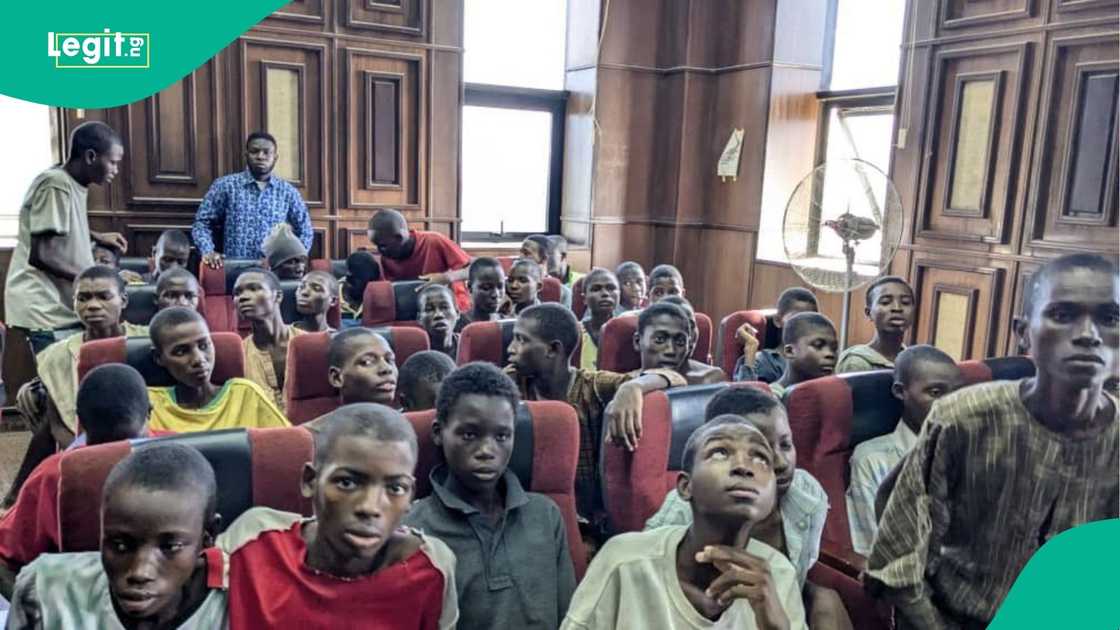
Source: Twitter
A striking example is the #EndHunger protest, where five young individuals, later known as the #ActivistaFive or #TheAbujaFive, were arrested and detained simply for holding placards. Similarly, Daniel Akande, Michael Lenin, and eight others were arrested and detained for their roles in organizing and leading the #EndBadGovernance protest last year. These incidents illustrate the growing repression that confronts alternative, youth-led self-organizing models in Nigeria today.
Like many other countries, Nigeria faces significant challenges within its justice system, particularly regarding the treatment of vulnerable youths and minors. Too often, young people are subjected to wrongful detention, abuse, and denial of due process, despite national and international legal frameworks designed to protect their rights.
Youth advocacy organizations, as vital players in the fight for equity and social justice, have a crucial role to play in addressing these systemic injustices. By leveraging self-organizing, youth-led, and girl-centered leadership models, these organizations can drive transformative change, ensuring that vulnerable youths are shielded from unfair treatment and wrongful detention within the justice system.
While the challenge with the justice youth groups must continue to organise as demonstrated in youth-led movements such as #EndSARS and the #SheVotesToo campaign, young people in Nigeria have developed powerful models of activism rooted in self-organisation and collective action.
These “invented spaces,” created by and for young people, offer platforms to engage policymakers, drive public discourse, and demand reform. When focused on justice system reform, these spaces can serve as channels to amplify the voices of young people who have experienced abuse or discrimination within the system.
Creating dedicated platforms for justice advocacy, whether through online campaigns, town hall dialogues, or youth parliaments, will further provide a safe environment where young people can share experiences and co-create policy solutions. These spaces not only empower youth as agents of change but also ensure that advocacy efforts remain deeply rooted in the lived realities of affected communities.
Also, youth organisations/movements can protect minors and youths in the justice system through the continued advocacy for legislative and policy reform. Such reforms should include mandatory legal representation for all minors, abolition of arbitrary arrests and detentions, and the full domestication and implementation of the Child Rights Act in all Nigerian states, implementation of the Charters, such as the African Charter on Democracy Elections, and Governance, and respects for the Fundamental rights of citizens as enshrined in Chapter 4 of the Nigerian Constitution.
Advocacy should also target the establishment of child-friendly procedures within police stations, courts, and detention centres. By building coalitions with legal experts, child protection agencies, and government institutions, youth organisations can ensure that reforms are grounded in human rights standards and reflect the realities on the ground.
Beyond policy, there is a need for immediate interventions that address ongoing injustices. Many minors and youths in detention lack access to legal representation or family support. Youth advocacy organisations, movements can bridge this gap by establishing legal aid desks and rapid response teams. These teams, composed of trained volunteers and partner lawyers, can intervene in cases of unlawful detention, monitor police practices, and provide referrals for psychological and social support.
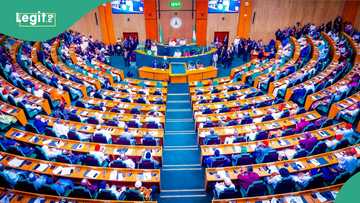
Read also
Bill to jail Nigerians who refused to vote during elections proposed at national house of assembly
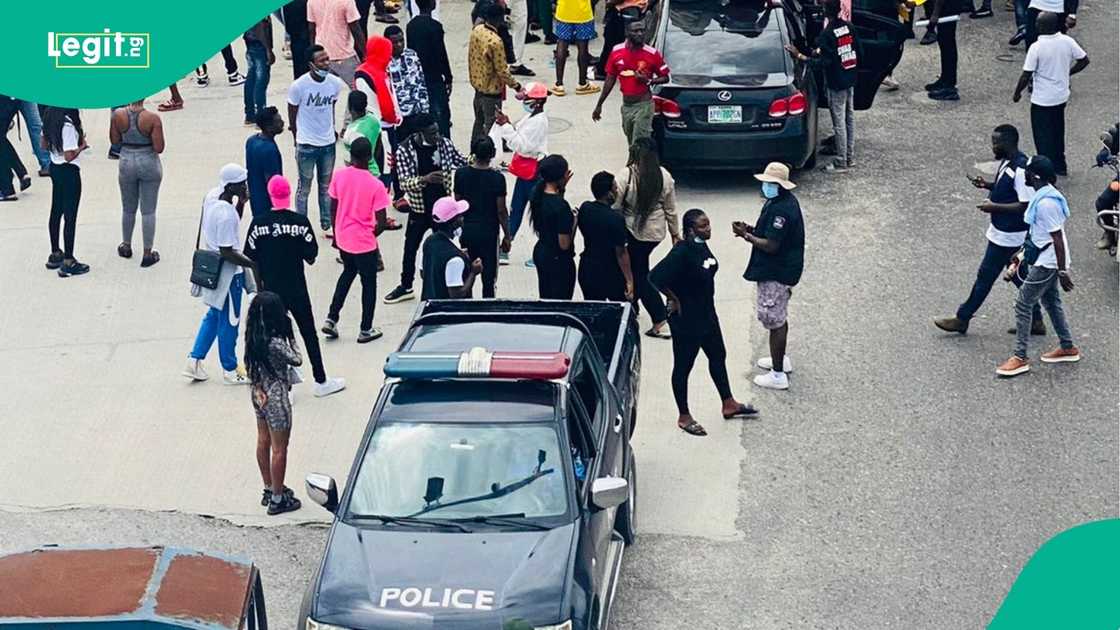
Source: Twitter
An essential component of systemic change is prevention. Youth organisations and movements must take proactive steps to educate their peers about their rights. Peer-to-peer education initiatives, “know-your-rights” toolkits, and school-based legal literacy clubs can empower young people to navigate the justice system more confidently and avoid entrapment by exploitative practices.
Additionally, youth-led monitoring of detention facilities—where safe and legally permissible—can act as a watchdog mechanism, helping to expose abuse and hold authorities accountable. These monitoring processes should be supported by data collection, storytelling, and regular reporting to relevant government and civil society actors.
The power of digital activism cannot be overstated. Just as movements like #EndSARS gained traction through online mobilisation, youth advocacy organisations and movements must continue to use storytelling, media campaigns, and creative expression to expose injustices in the justice system. Short films, social media campaigns, podcasts, and visual art can bring public attention to the plight of detained minors and build momentum for change.
By framing stories in human-centered, relatable ways, these campaigns help drive empathy and solidarity. They also challenge dominant narratives that criminalise young people, particularly those from poor, rural, or conflict-affected backgrounds, and instead portray them as rights-holders deserving of dignity and justice.
Finally, lasting reform requires the involvement of government and institutional actors. As can be seen through initiatives like the Democracy Convening and Girls Takeover, creating intergenerational dialogue and mentorship between youth and policymakers is essential. Youth organisations should actively pursue partnerships with the Ministry of Youth Development, the Ministry of Justice, the Nigeria Police Force, and relevant legislative committees to influence systemic reform from within.
These partnerships should focus on co-creating policies, training justice actors on child and youth-sensitive practices, and institutionalising accountability mechanisms. In doing so, youth advocates move from being outside critics of the system to becoming co-creators of a just and inclusive future.
Conclusion
Protecting vulnerable youths from wrongful detention and unfair treatment is not a peripheral issue; it is central to the broader struggle for social justice and human rights. Youth advocacy organisations and movements, guided by principles of self-organisation, lived experience, and intergenerational collaboration, are uniquely positioned to lead this charge. By combining direct legal aid, policy advocacy, peer education, digital activism, and institutional engagement, they can dismantle unjust systems and build new ones that honour the rights and dignity of every child. The future of justice in Nigeria and indeed across the world depends on it.
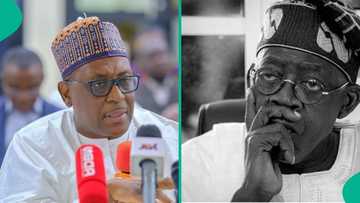
Read also
Tinubu’s govt mentions number of doctors who have japa and how much Nigeria has lost over 5 years
Disclaimer: The views and opinions expressed here are those of the author and do not necessarily reflect the official policy or position of Legit.ng.
Jonathan Abakpa is a youth advocacy expert and recipient of the GCERF and Kofi Annan Prize for Preventing Violent Extremism Among Young People. He led the award-winning "Tell Your Story" campaign, showcased at the UN General Assembly in 2018.
PAY ATTENTION: Сheck out news that is picked exactly for YOU ➡️ find the “Recommended for you” block on the home page and enjoy!
Source: Legit.ng


